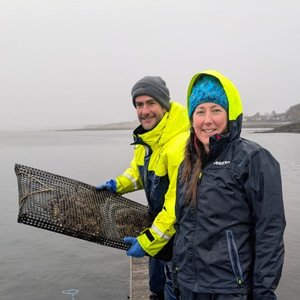Table of Contents
Introduction
Study Objectives and Related Outputs
Terms Used in This Report
Selected Highlights of Catfish 2010 Part I
Section I: Population Estimates
A. Distribution of Catfish Production Phases
B. Broodfish Management
1. Broodfish lines
2. Broodfish by age
3. Annual cycle rate (cull rate) of broodfish
4. Reasons for culling
5. Broodfish loss
6. Seasonal feeding practices
7. Protein level of feed
8. Stocking of forage fish
C. Spawning Management
1. Number of spawning ponds
2. Draining and renovation of spawning ponds
3. Broodfish stocking densities
4. Female-to-male ratio in spawning ponds
D. Hatchery Management
1. Egg masses
2. Hatchery water management
3. Density of egg masses in hatching troughs
4. Turning of egg masses
E. Egg Health Issues
1. Survival of eggs until hatching
2. Causes of egg loss
3. Fungal/bacterial prevention and treatment
F. Fry Management
1. Number and species of fry hatched
2. Length of time fry left in fry troughs
3. Primary feed in fry troughs
4. Number of feedings per day for fry
5. Fry trough disinfection
6. Fry use
7. Raising of fry to fingerlings
G. Fry/Fingerling Pond Management Prior to Stocking
1. Placement of fry in raceways or tanks prior to stocking
2. Number and size of fry/fingerling ponds
3. Treatment of fry/fingerling ponds before stocking
4. Stocking of fry/fingerling ponds
5. Number of days between filling ponds and stocking
6. Number of years between complete renovations of fry/fingerling ponds
7. Fertilization of fry/fingerling ponds
8. Insect control in fry/fingerling ponds
9. Chloride level
10. Salt use
H. Fingerling Pond Management after Stocking
1. Fry feed type
2. Fry feeding frequency
3. Protein level of feed
4. Primary method for monitoring dissolved oxygen
5. Horsepower of fixed aeration
6. Water quality testing
I. Fingerling Health Issues
1. Vaccination for enteric septicemia of catfish (ESC)
2. Average age of fry at ESC vaccination
3. ESC vaccination of fry intended for on-farm growout
4. ESC vaccination of fry intended for sale as fingerlings
5. Outbreaks of ESC in ponds containing vaccinated fingerlings
6. Columnaris vaccination
7. Average age of fry at columnaris vaccination
8. Columnaris vaccination of fry intended for on-farm growout
9. Columnaris vaccination of fry intended for sale as fingerlings
10. Outbreaks of columnaris in ponds containing vaccinated fingerlings
11. Survival of stocked fry until harvest
12. Causes of fingerling loss
13. Primary treatment for ESC outbreaks
14. Laboratory diagnosis
15. Use of medicated feed
16. Snail control
Section II: Methodology
A. Needs Assessment
B. Sampling and Estimation
1. State selection
2. Operation selection
3. Population inferences
C. Data Collection
1. Phase I
D. Data Analysis
1. Validation and estimation
2. Response rates
Appendix I: Sample Profile
Appendix II: U.S. Catfish Acreage Inventory and Operations
United States Department of Agriculture Animal and Plant Health Inspection Service Veterinary Services National Animal Health Monitoring System December 2010
Download the full report (PDF) from the link below:
catfish-2010-part-i-reference-of-catfish-health-and-production-practices-in-the-united-states-2009







